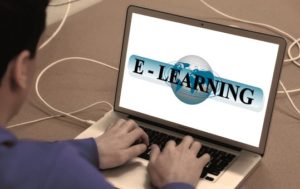Free Staff Development Learning Resources
 Many humanitarian organizations, especially national NGOs, do not have a lot of training resources for their staff. It is very difficult to get funding for staff development from donors. However there are some very excellent FREE e-Learning resources available online.
Many humanitarian organizations, especially national NGOs, do not have a lot of training resources for their staff. It is very difficult to get funding for staff development from donors. However there are some very excellent FREE e-Learning resources available online.
Likely many of your employees in the field will not have their own computer or be able to easily access one, but you could designate one computer in your country program for staff development. Try to make this computer available to staff in the evenings or on weekends if possible. At a minimum, make it available to staff during their break times.
When your staff complete a course, give them a certificate to recognize their achievement and to encourage them to continue on their learning path.
The following are free courses that can be accessed at any time. Some are specifically related to humanitarian topics, but all of them are applicable to our sector.
DisasterReady.org: Through the DisasterReady.org Initiative, aid workers can share resources and information and access customized online learning anytime, anywhere in the world. By providing high-quality, accessible training at no cost, the DisasterReady.org portal allows aid workers to do what they do best: save lives, rebuild communities, and restore hope.
Building a Better Response: “The Building a Better Response project aims to enhance the capacity of national and international NGO workers and other humanitarian actors to engage with the international humanitarian coordination system in a manner that improves overall coordination and responds to the needs of crisis-affected populations.” The eLearning is self-paced, and the documents, websites and resources are available to everyone.
Microsoft: Enhance your Microsoft Office skills – available in over 60 languages through Microsoft. To change the language, scroll to the very bottom and click on “English”— then select your language from the next screen. Tutorials include Word, Outlook, Excel, Powerpoint and more.
PLAN Academy: The Plan Academy provides on-going, high quality, relevant structured learning, to enhance your understanding and practice of quality programming. Specifically of interest may be the “Child Protection in Emergencies.” It takes approximately 14 hours to complete, and is designed for managers and front line staff who are working on/interested in child protection in emergency settings – both for preparedness and response. It is structured into 8 modules, including “Psychosocial support in emergencies” and “Separated and unaccompanied children.” To access the course, request an account on Plan Academy, here (see instruction at the Non-Plan Section on the page), and once registered you can self-enroll here.
The Advanced Training Program on Humanitarian Action (ATHA): seeks to build operational capacity, facilitate learning across organizations in the humanitarian sector, and to mobilize change through a community of practice. Especially relevant is the new International Humanitarian Law self-paced e-learning course. As brief hands-on training courses, they provide a great introduction to international humanitarian law (IHL) and address challenges faced by humanitarian practitioners in the field.
International Women’s Health and Human Rights: This Stanford course provides an overview of women’s health and human rights, beginning in infancy and childhood, then moving through adolescence, reproductive years and aging. They consider economic, social, political and human rights factors, and the challenges women face in maintaining health and managing their lives in the face of societal pressures and obstacles. This course runs in sessions, so it cannot be accessed at any time. Check the website for the next start date.
+Acumen: +Acumen courses use online tools to scale the impact of their traditional leadership development programs. By combining leadership skills with operational skills and financial skills, courses from Acumen aim to equip emerging change leaders with the tools to change the way the world tackles poverty and build a world based on dignity.
OpenIDEO: At OpenIDEO, people from all corners of the world collaboratively tackle some of the toughest global issues. No matter who you are, your experiences will bring a unique perspective to the conversation and idea development. Participants tackle each social issue via a challenge – a three to five month collaborative process that focuses attention on the topic and creates a space for community members to contribute and build off each other.
Coursera: Coursera is an education platform that partners with top universities and organizations worldwide, to offer courses online for anyone to take, for free. We envision a future where everyone has access to a world-class education. We aim to empower people with education that will improve their lives, the lives of their families, and the communities they live in.
edX: EdX was created for students and institutions that seek to transform themselves through cutting-edge technologies, innovative pedagogy, and rigorous courses. Through our institutional partners, the Xconsortium, along with other leading global members, we present the best of higher education online, offering opportunity to anyone who wants to achieve, thrive, and grow.
GCFLearnFree: The GCFLearnFree.org program teaches essential skills for living and working in the 21st century through tutorials, videos and interactive lessons. From basic computer skills, email and Microsoft Office to reading, math, and more, GCFLearnFree.org is a great starting point for building career, learning and technology skills.
NovoEd: Take courses from thought leaders and distinguished professors from top universities. Get to know your fellow students around the world as you collaborate with them on course projects. Work on real-world course projects that excite you and make a difference.
I look forward to your feedback on these learning resources!